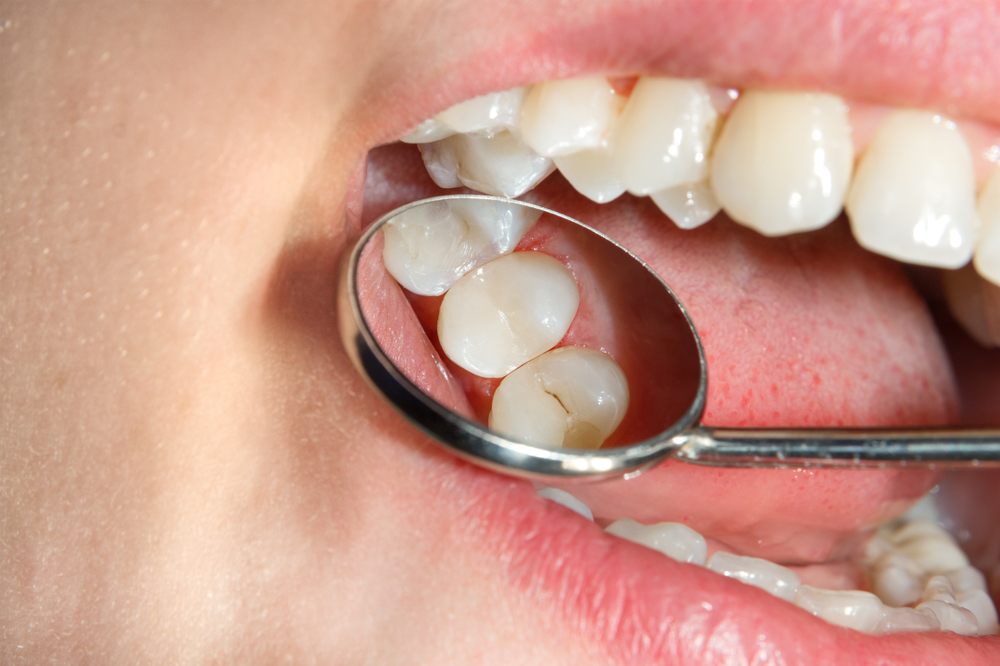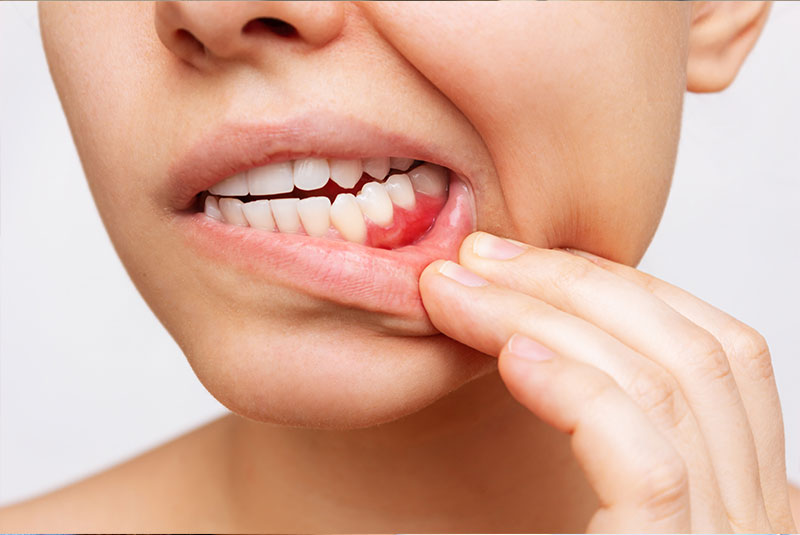

Advanced periodontitis is a severe stage of gum disease caused by a bacterial infection that attacks the gum tissues and can lead to tooth loss when not treated in its early stages. When periodontitis is left untreated for an extended period, it can progress to advanced periodontitis, which can cause significant damage to the gums, teeth, and supporting bones.
Our Woodland Hills dentist recommends immediate gum disease treatment when you notice any symptoms of periodontitis to prevent further damage. To schedule an appointment, contact our dental office by calling 818-491-7294 today.
Gum disease can lead to tooth loss, bone loss, and even cause systemic health conditions like cardiovascular disease, stroke, or diabetes complications.
Advanced periodontitis occurs when the bone and tissues that support the teeth become severely infected and damaged. This condition is caused by an excessive buildup of plaque and tartar on the teeth and gums. When plaque isn’t removed through regular brushing and flossing, it can harden into tartar, which can only be removed by a professional dental cleaning.
As the tartar builds up on the teeth and gums, it can cause inflammation, swelling, and bleeding. Over time, the infection can spread to the bone and tissues that support the teeth, leading to tooth loss and other serious health problems.

Advanced periodontitis can cause a wide range of symptoms, including:
Treatment for advanced periodontal disease can be limited. Although there’s no way to reverse the damage like one could with earlier stages of gum disease such as gingivitis, your dentist can stop the damage from going further by recommending one or more of these treatments.
In some cases, surgical intervention may be necessary to treat advanced periodontal disease. Procedures such as flap surgery, bone grafting, or guided tissue regeneration may be performed to access deeper areas of infection, remove diseased tissue, and promote tissue regeneration and healthy bone growth.
Laser-assisted periodontal therapy is an alternative to traditional surgery. It involves using a dental laser to remove diseased tissue and bacteria while promoting gum tissue regeneration.
In some cases of severe gum disease, oral antibiotics may be prescribed to help control the gum infection. They can be taken orally or applied directly to the infected areas, such as in the form of antimicrobial mouth rinses or gels.
Scaling and root planing is a deep cleaning procedure performed by a dental professional. It involves removing plaque and tartar buildup from above and below the gum line (scaling) and smoothing the tooth roots to eliminate bacterial toxins (root planing). This procedure helps remove the source of infection and promotes the healing of the gums.
After an initial periodontal treatment, regular follow-up visits with a dental professional are crucial. These visits typically include professional cleanings and ongoing monitoring of gum health to prevent the recurrence or progression of periodontal disease.
Good oral hygiene practices at home are essential for managing advanced periodontal disease. This includes regular brushing and flossing, antibacterial mouth rinses, and incorporating interdental cleaning tools such as dental picks or water flossers to effectively remove plaque and bacteria from the gum line and between teeth.

The best way to prevent advanced gum disease is to practice good oral hygiene habits to avoid the onset of the disease. This includes brushing your teeth twice a day, flossing daily, and using an antiseptic mouthwash to kill bacteria.
You should also schedule regular dental checkups and cleanings with our Woodland Hills dentist to ensure any early signs of gum disease are detected and treated promptly.
Other ways to prevent advanced gum disease include:
Managing Stress: Stress can weaken your immune system, making it harder for your body to fight off infections like gum disease. Finding healthy ways to manage stress, such as exercise, meditation, or therapy, can help reduce your risk of gum disease.
Advanced periodontitis is caused by a buildup of plaque and tartar on the teeth and gums that goes untreated. When plaque isn’t removed by regular brushing and flossing, it can harden into tartar, which can only be removed by professional cleanings. Without regular cleanings, the buildup can cause infections and create pockets where bacteria harbor.
The treatment for advanced periodontitis will depend on the severity of the infection and the extent of the damage to your teeth and gums. In most cases, treatment may involve a combination of professional cleanings, medications, and surgery.
Advanced periodontitis can lead to tooth loss, bone loss, and other serious health problems if left untreated. It’s important to seek treatment for severe periodontitis as soon as possible to prevent further damage to your teeth and gums.
If you’re experiencing any symptoms of advanced periodontitis, don’t wait to seek treatment. Call today at 818-491-7294 to schedule an appointment and take the first step toward healthier teeth and gums.
Early treatment is essential for preventing further damage and long-term consequences, so don’t hesitate to take action and prioritize your oral health.
I understand the information disclosed in this form may be subject to re-disclosure and may no longer be protected by HIPAA privacy regulations and the HITECH Act.
